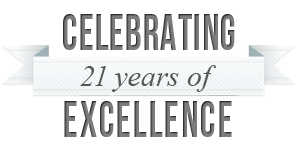I am sometimes asked if I believe there is a gap between women’s potential and their professional advancement. Unfortunately, I have to say yes. Women have the edge in terms of formal education—more degrees of all kinds are earned by women than by men. Yet we continue to see wage and leadership disparity in favor of men in many industries.
Formal education is only the first step on the road to leadership success. Educational institutions are places we learn to think, make mistakes, and step outside our comfort zones. After leaving those institutions and moving into the workforce, women need to keep their skills honed and their eyes open for opportunities. In any discipline change, it’s vital that technical and soft skills are fresh and current when advancing in the workplace. Three very solid ways of keeping abreast of industry trends and changes are reading as much as possible about areas of expertise or interest, working with a mentor, and plain old networking. It’s also important for women to be comfortable and assertive about taking on stretch assignments as a way to learn about other functions or areas of the business.
Networking and mentoring are significant, especially for young women entering the workforce and women who are returning after considerable leaves. Mentoring not only greatly benefits the employee but also the mentor. It’s a way for leaders to pay it forward and sponsor future female executives.
It’s also important for women in junior leadership roles to take volunteer opportunities in the workplace, such as serving on a committee or organizing a project with a local nonprofit. These might be viewed as low-risk projects, but they are definitely observed by senior leaders. My point is that many opportunities we don’t think count actually do translate to leadership skills in the workplace.
I see women—especially those who have achieved degrees and are recently returning to the workforce after being a full-time parent—downplaying the skills they’ve learned outside of a professional environment. I tell them that it’s critical to emphasize skills such as consensus building, organization, time management, scheduling, and working in highly-charged political environments or on committees because they are all relevant, transferable skills.
Something I’ve witnessed throughout my career is that so many women simply won’t apply for a job or change jobs unless they feel fully qualified for the role. Men apply for a job because they want it, whether they believe they’re fully qualified or not.
The bottom line is that we can address the wage and advancement disparity by helping women gain more self-confidence in addition to focusing on their education. It’s up to us as mentors to encourage, support, and help advance future women leaders.







